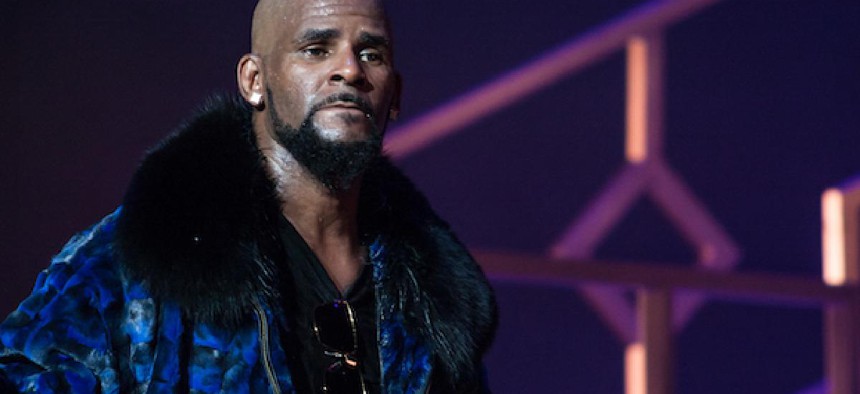R. Kelly’s guilty verdict is a win for Me Too
After avoiding accountability for years, the multi-platinum musician was found guilty of being the head of a racketeering and sex trafficking scheme.

R. Kelly performing in 2016. Jamie Lamor Thompson/Shutterstock
On Monday, R&B artist R. Kelly was found guilty of one count of racketeering and eight violations of The Mann Act, which bans the transportation of “any woman or girl for the purpose of prostitution,” signalling a major win for Black women and girls in the Me Too movement.
The famed musician, who has long skirted claims of sexual abuse and was acquitted of all charges in a child pornography trial that occurred in 2008, was found to be the central ring-leader in a decades-long racketeering and sex trafficking plot, which recruited women and underage girls for sex. Now Kelly faces a potential life sentence, however, his sentencing will not occur until May. The musician is also facing additional charges in Illinois and Minnesota.
Following the news of Kelly’s guilty verdict, New York Attorney General Letitia James remarked on Twitter that his conviction was “an important moment for accountability in the #MeToo movement: no man—regardless of his celebrity, wealth, or status—is above the law.”
Recently, the Me Too movement took a hard hit within New York’s nonprofit world after the chair of Time’s Up’s board of directors, Roberta Kaplan, resigned, as did the organization’s president Tina Tchen, in August. Both leaders of the organization, which aims to help women combat workplace harassment, chose to step down after it had been revealed that they offered guidance to former Gov. Andrew Cuomo as he was trying to fight off allegations of sexual misconduct that were ultimately confirmed to be true. The rest of the Time’s Up board chose to resign in early September.
Kelly’s six-week-long trial was the first high profile case in the Me Too-era where most of the accusers of sexual misconduct had been women of color, which felt like a test of inclusivity for the movement to many, as so much of the movement has tended to focus on white accusers.
“This is culmination of the movement of so many women who having been trying so long to have their voices heard,” Oronike Odeleye, co-founder of the #MuteRKelly campaign, told The New York Times. “We have never had full ownership of our bodies. And we’re at a moment where Black women are no longer accepting that as the price of being Black and female in America.”